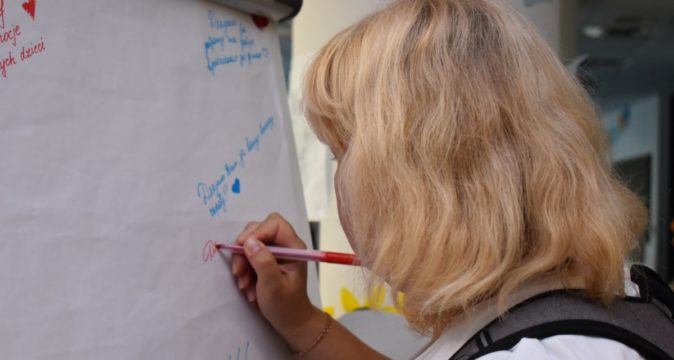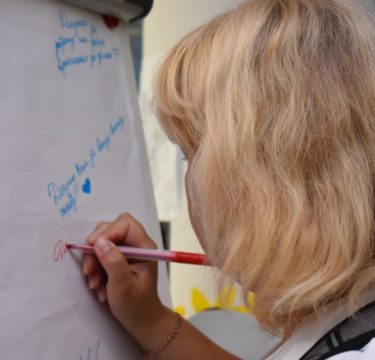Nostrification of Ukrainian teachers, support for schools in Poland


Nostrification of diplomas of Ukrainian female teachers who want to work in educational institutions in Poland. It is a joint program of the Polish Center for International Aid and CARE Poland and Mosakowski Family Foundation. The Foundation helps complete and translate documents and contact universities.
The project was open to those who have relevant education and diplomas obtained at universities abroad, mainly in Ukraine, who would like to work in Polish schools and kindergartens, but found it difficult to obtain nostrification on their own. Along the way, they encountered financial and administrative difficulties.
– The Foundation comes here to help complete and translate the documents. We also help direct contact with universities and departments where these documents can be submitted. The process is important especially because once it is completed and the education obtained in a country other than Poland is confirmed, such a person can apply for a position in line with her education” says Ewa Grodek, project coordinator at the Polish Center for International Aid Foundation.
The PCPM Foundation will help 350 refugee women to have their diplomas nostrified.
Response to staff shortages in schools and kindergartens
Polish educational institutions have been struggling with staff shortages for a long time. On the one hand, the program is an opportunity for refugee women to take up jobs in line with the education they received in Ukraine. On the other hand, it is also an opportunity for Polish schools and kindergartens to hire experienced female pedagogues, psychologists, or mathematicians.
– Local governments and education offices also pointed out the challenges of the Polish language. The specific nomenclature used in the subject, therefore, for those who apply to our program will obtain nostrification, we will also organize specialized courses in Polish,” explains Ewa Grodek.
As a result a biology teacher would know the terminology related to this subject in Polish.
Support for Ukrainian students
UNHCR reports that children, refugees from Ukraine make up 4 percent of schoolchildren in Poland. Which means that there is at least one refugee student in more than 85,000 classrooms. However, only less than half of Ukrainian children, or about 173,000, are enrolled in schools. The older the students, the less often they go to a Polish school. In the previous school year, only one in five Ukrainian students of high school age attended a Polish institution. Poland’s Ministry of Education is working on solutions to introduce compulsory schooling for Ukrainian children in Poland. The regulations would take effect in September, the new school year. Hiring Ukrainian female teachers in Polish schools is also at least a partial response to this challenge.
What is nostrification?
Nostrification is a process in which a state authority or educational institution evaluates a diploma or educational certificate obtained abroad. The purpose is to determine whether the document meets the requirements of the country in which the person wants to use it. In the case of academic diplomas, nostrification allows for equivalence with a domestic diploma.
Nostrification of diplomas in Poland
In Poland, the procedure for issuing information on foreign diplomas is regulated by the National Agency for Academic Exchange (NAWA). Those who wish to obtain information on their foreign diplomas must apply NAWA. The application should include documents confirming the education and a description of the curriculum the person completed abroad.
After applying, NAWA evaluates the documents and decides either to recognize the diploma or informs the person about the possibility of nostrification second-cycle or supplementary studies. Nostrification is handled by academic institutions. If the documents meet the requirements, the person receives official confirmation of the equivalence of the diploma. This allows for the legal use of foreign qualifications in Poland.
The “Enhancing Employment of Ukrainian Professionals in the Polish Education System” project is implemented by PCPM Foundation and supported by CARE Poland and Mosakowski Family Foundation.